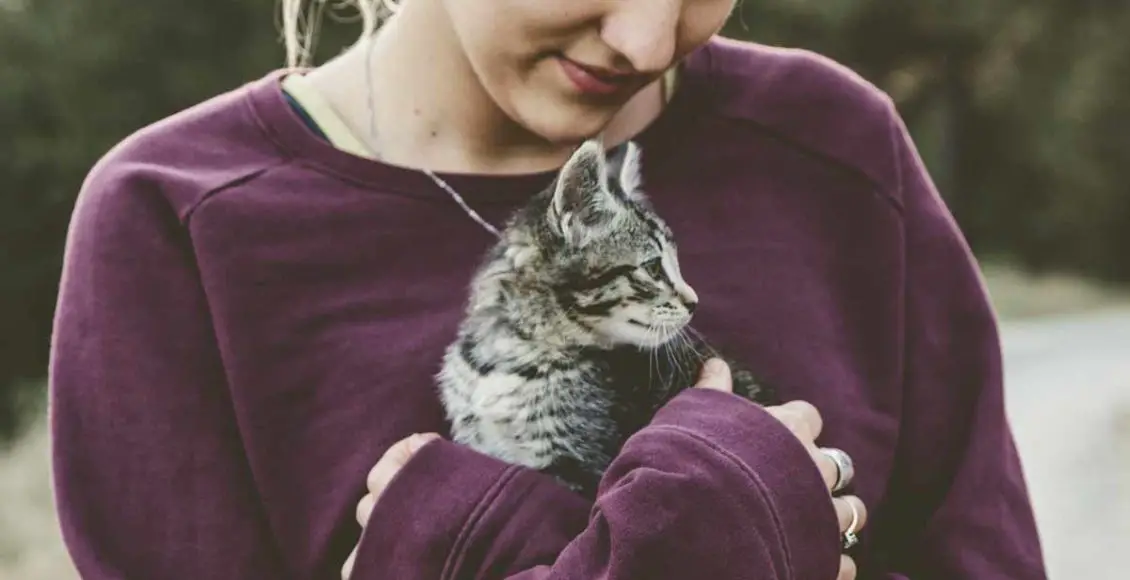According to a recent study, cat owners fall into 5 categories in terms of their attitudes towards their pets’ roaming and hunting.
Researchers from the University of Exeter surveyed cat owners in the United Kingdom and found they ranged from “conscientious caretakers” worried about the animals’ impact on wildlife and who feel some responsibility, to “freedom defenders” who were wholly against restrictions on cat behavior.
“Concerned protectors” serious about cat safety, “tolerant guardians” did not approve of their cats hunting but tended to accept it, and “laissez-faire landlords” were mostly in the dark of any problems regarding cats roaming and hunting.
For a long time, conservationists have worried about the numbers of animals caught by the country’s large population of pet cats.
Most domesticated cats kill only a few wild animals if any at all, but with a 10 million-strong cat population, the number of killed mammals, birds, and reptiles can accumulate.
And apart from their default role as mouse hunters, most people who own cats find the dead animals brought home a disturbing reminder of their pet’s wild side.
Dealing with this issue has not been easy due to disagreements between people putting cat wellbeing first and those focusing on wildlife conservation.
The Exeter team, with its research project called “Cats, Cat Owners and Wildlife” has made it its mission to find a conservation deal that could be good for both sides by identifying ways in which owners managing their cats can benefit the cats as well as bring down the number of wildlife killings.
The study is a positive step towards understanding how owners of cats view them and how best to handle them.
According to the experts, the findings show the need for diverse management strategies that can please the differing points of view of cat owners.
“Although we found a range of views, most UK cat owners valued outdoor access for their cats and opposed the idea of keeping them inside to prevent hunting,” said lead author Dr. Sarah Crowley, from Cornwall’s University of Exeter’s Environment and Sustainability Institute.
“Cat confinement policies are therefore unlikely to find support among owners in the UK.
“However, only one of the owner types viewed hunting as a positive, suggesting the rest might be interested in reducing it by some means.
“To be most effective, efforts to reduce hunting must be compatible with owners’ diverse circumstances.”
Suggested ways to bring down hunting deaths include attaching colored “BirdsBeSafe” collars on cats as well as bells.
The researchers are currently looking into the effectiveness of these and more new measures and how cat owners feel about them, with hopes of offering various solutions.
“This latest research we have funded reveals the incredibly diverse perspectives amongst cat owners in regard to their pets’ hunting behaviour,” said Tom Streeter, Chairman of SongBird Survival.
“If nature is to ‘win’ and endangered species thrive, a pragmatic approach is needed whereby cat owners’ views are considered as part of wider conservation strategies.
“The study highlights the urgent need for cat owners and conservationists to work together to find tailored solutions that are cheap, easy to implement, and have a positive effect on wildlife and bird populations across the UK.”
Dr. Sarah Ellis, iCatCare’s Head of Cat Advocacy, had the following to say:
“The finding that many UK cat owners actually care a great deal about wildlife conservation and their cats’ impact on it, suggests that some owners are receptive to employing cat-friendly ways of reducing hunting.
“The right interventions could improve wildlife conservation efforts, maintain good cat mental-wellbeing, and at the same time improve the cat-human relationship.
“This would be especially true for ‘tolerant guardians’ and ‘conscientious caretakers’, by reducing the internal conflict of loving an animal that often hunts other animals they also care about.”
The study featured 56 cat owners, some from the rural parts of the country, and some from urban parts. It was made public in the journal Frontiers in Ecology and the Environment and is titled: “Diverse perspectives of cat owners indicate barriers to and opportunities for managing cat predation of wildlife.”
Along with the research data, the team has come up with an easy quiz so cat owners can find out which category they fall into.
We hope you’ve found this article helpful. Let us know your thoughts on the topic by joining the conversation in the comments and please share if you’ve enjoyed the read.



